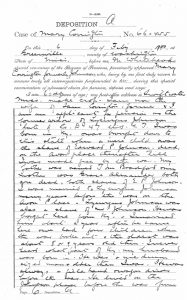Lakeport Legacies · August 25 · The Other Lycurgus Johnson: U.S. Colored Troops and Civil War Pension Files in the Delta · Dr. Blake Wintory
Lakeport Legacies · August 25 · The Other Lycurgus Johnson: U.S. Colored Troops and Civil War Pension Files in the Delta
Lakeport Plantation director, Dr. Blake Wintory, will present “The Other Lycurgus Johnson: U.S. Colored Troops and Civil War Pension Files in the Delta” on August 25, 2016. Wintory, will discuss on-going research at Lakeport to learn more about the life stories of slaves and their lives during the post-war Reconstruction era at Lakeport and in the Delta through pension files held at the National Archives.
During the Civil War, nearly 200,000 African American men served in the Union Army, with over 47,000 coming from Arkansas, Louisiana, and Mississippi. Many of these men and their families filed for pensions from the federal government. Those files, often filled with interviews with family, friends, comrades, and former owners, can be a trove of information on 19th century African American life, sometimes providing complete life histories for former enslaved laborers.
Among the pensions examined by Wintory is one for a Lycurgus Johnson. This Lycurgus, who happens to share the name of Lakeport’s owner, enlisted at Lake Providence, Louisiana on May 5, 1863 in the 8th Louisiana Regiment Infantry (African Descent), Company D– later renamed the 47th U.S. Colored Infantry. Sgt. Johnson died just over a year later on July 20, 1864 in Vicksburg of tuberculosis, then called “consumption.”
Lycurgus’ widow, Mary, in an interview with a government official in 1900, revealed she and Lycurgus were slaves on Edward P. Johnson’s Avon Plantation on Lake Washington. Edward Johnson and Lakeport’s Lycurgus were first cousins. She arrived on the plantation as a “mere child,” while Lycurgus arrived from Kentucky around 1849, when he was likely in his early 20s. He and Mary were married by “a slave-preacher long before the war on the Avon Place & we lived together without separation till Lycurgus Johnson enlisted,” she recalled. Mary was a house servant and Lycurgus worked around the house; he’d “drive the wagon & did things that did not require heavy work” due to the illness that eventually took his life. The record also provides important details about plantation communities. For example, the file also includes interviews with two other slaves on the Avon Plantation, Matt Harris and Downing Williams, and an affidavit signed by the slave preacher, Hilliard Holmes, that married the couple in 1850.



